|
Imagine your dream is to master the art of hymn playing but you often have the difficulty in spending the time to learn the hymns the right way. You know what's right but somehow you find yourself on the organ bench doing things which don't contribute to your goal.
Why is this so? For the most people, it's because either they haven't formulated their mission strongly enough or they get distracted from their mission to do things that don't matter. There is one medicine which works wonders (at least in my case). That's a deadline. Make sure you give yourself external or internal deadlines to hold yourself accountable. For example, if you want to learn to play hymns on the organ, set up a date when you can play and sing hymns together with your friends or family. If you play at church, it could be as simple as preparing a certain number of hymns in a certain way for your next service. What happens, if you fail to learn those hymns on time? You may disappoint your friends or family or your congregation with your boss, or your may fear that you won't reach your potential. When the idea of not reaching your potential becomes more difficult to bear than the idea of sitting down on the bench and practicing the right things the right way, you will find the motivation to spend the time necessary to master the art of hymn playing. Next: Read this before your next practice Sight-reading: Duo VII Ave maris stella (in Versets of 2, 3 and 4 voices, Fabordones, Intermedios, p. 8) by Antonio de Cabezón (1510-1566), a blind Spanish Renaissance composer and organist. Hymn playing: A Great and Mighty Wonder
Comments
John and Eliza shared this inspiring definition of excellence:
“Excellence is the result of caring more than others think is wise, risking more than others think is safe, dreaming more than others think is practical, and expecting more than others think is possible.” (Author Unknown) Here's how it translates to organ practice: “Caring more than others think is wise" Are you a weekend-only organist? I hope not because to excel at organ playing, it must be your mission. Daily. "Risking more than others think is safe" Are you prepared to put yourself on the line? Can you say: "Here, this is what I'm making. I hope you will do something with it." “Dreaming more than others think is practical" Have you ever thought of becoming the only organist who does what nobody in the world can do? You should. We don't need more organists. We need more of you. “Expecting more than others think is possible" Remember the thrill of your first-ever truly great improvisation experience? You can do even better. The emphasis in all of those four ideas is on "MORE THAN OTHERS THINK". Ignore everybody. Exactly. Next: Finding difficulty in spending the time Sight reading: Part III: Fuga from Organ Sonata No. 2, in C minor, Op. 65 by Felix Mendelssohn (1809-1847) who was a German composer, pianist, organist, and conductor of the early Romantic Period. Hymn playing: One Thing’s Needful Having a weak technique comes with a price.
When I was a student at the Lithuanian Academy of Music back in 1997, together with one colleague of mine we were chosen to go to the International Summer Organ Academy and Festival „Juniores Priores Organorium Seinensis“ in Sejny, Poland (Seinai in Lithuanian) with my professor Leopoldas Digrys. This little town, which is close to Lithuanian/Polish border, houses a Basilica with a two-manual Romantic mechanical action organ, built by the Lithuanian organ builder Jonas Garalevicius from 1907. This instrument stands behind the older, quite ornate Baroque facade, as it's often the case with older organs. Although 17 years have passed from that summer, here's what I remember as clearly as today: this organ had an incredibly heavy action. I had played many organs ever since and most of them were mechanical but no instrument could compare to that of the action of the organ at the Basilica in Sejny (I'm sure there are even more challenging organs than this one in the world, though). In Sejny, I played a charming Organ sonata No. 3 by Paul Hindemith, one of the most significant 20th century German composers, which is not terribly challenging piece technically but for some reason, depressing the keys felt like a torture, especially in the 3rd, faster movement. Clearly my technique was not developed enough (although the action itself might have felt differently when the organ was new back in 1907). I remember my professor advising me to relax my hands and shoulders and use large muscle groups instead of fine fingerwork. This helped a lot. So, if you are in a similar situation, try not to lift the fingers of the keys, relax, and breath. It's wise not to choose to play very virtuosic pieces on such an organ, if your technique isn't flawless. Improvisation always helps because when you're improvising, you're are constantly adjusting to the real situation. A lot of people nowadays play electronic organs, older of which have a very light touch. After practicing a lot on such an instrument and suddenly given an opportunity to try a real mechanical organ (even not with a very heavy action) will present certain difficulties. And here's is my long-term advice: Perfect your finger technique as much as you can and you will never be in real peril when playing a mechanical organ with a heavy action. Piano playing is good for finger technique, too. So if you have a chance to practice your organ pieces on the piano, please do it often. If you don't like practicing scales, arpeggios, chords and Hanon exercises, you can take your favorite pieces and create the exercises out of them. [HT to Jon] Next: What is excellence Sight-reading: Ricercare del quarto tuono by Adriano Banchieri (1568-1634). He was an Italian composer, music theorist, and organist of the late Renaissance-early Baroque period. Hymn playing: Jesus, Thy Boundless Love To Me Happy Thanksgiving!
Yesterday morning I was thinking what special piece I could recommend to you on this occasion and quite unexpectedly I found myself pondering upon the idea of creating a composition based on the famous Thanksgiving hymn - Now Thank We All Our God. Some 10 hours later, a Processional for organ on the same tune was born in which I also used two other well-known Thanksgiving hymn tunes (which I will let you discover for yourself). Here's the score and a MIDI file for listening to the sound. This is my way of saying thanks to you, my loyal readers. Next: How to adjust to mechanical organ with heavy action Sight-reading: Marche Religieuse (p. 12) from 12 Pièces, Op.16 by Leon Boellmann (1862-1897), French Romantic composer and organist. Hymn playing: Now Thank We All Our God To come up with a great but risky idea which doesn't resonate with your audience yet or after seeing that this idea didn't lift off, didn't succeed - to give up and stop bothering about it?
This is a tricky question to answer - we see this again and again in business, in classrooms, in organ recitals, in families - everywhere where there are at least two people involved. You thought you can change the world (your world) but the inertia was stronger - not too many people want to be changed, even less people want the change of you. Your idea failed because a) it wasn't remarkable enough for the people to tell their friends about or b) they are not the right people for you. Here's a more productive way to look at this: Based on what you learned from your audience, you change something in your idea or the execution of the idea and do it again (if they are the right people for your idea). If not - you go find some other people who are more likely fit to what it is you have to offer them. If you give up too soon, you will not be able to change the people you want to change. On the other hand, if you just obnoxiously pitch the same idea the same way repeatedly to the same people - they will flee from you like we run from selfish telemarketers. But if your idea generously helps people achieve their dreams, you have a chance. The first step is knowing what their dreams are. Usually it's not what they say they want - it's what their inner subconscious needs are. [HT to Pieter] Next: Two pieces for Thanksgiving Sight-reading: Part III: Allegro from the Trio Sonata No. 2 in C minor, BWV 526 by J.S. Bach Hymn-playing: I Bind Unto Myself Today Do you remember the story of Saint George slaying the dragon?
It's sad to meet people from all walks of life who don't slay their inner dragons anymore - a painter who doesn't paint, a dancer who doesn't dance, a carpenter who gave up his woodworking because of change in situation. Yes, we can no longer play 4 hours day when we are married and/or have other obligations but it doesn't mean we should be living only to fulfill expectations of others of how we should live. Some time should be left for our self-improvement (it's worth it even for 15 minutes a day). Otherwise, we get seniors who watch TV all day long, we get depression, alcoholism, all kinds of addictions because of unrealized personal potential. Sometimes they even take the form of a physical illness. Everyone is battling their inner dragons, even the kids who say that mommy should not be doing her thing, even our spouses - everyone (myself included). The problem is when we abuse their trust and live a life like we would have servants. The problem is when we develop our skills selfishly without enriching the lives of others. A painting hidden in the attic is just a painting, not an art. But when a painting has the collision with another human being which changes something in both the giver and the receiver - that's art. An organ playing hidden in a person's music room on some fancy state-of-the-art digital organ is not an art. But when you give this gift to others facing the fear that you might be misunderstood, that your playing isn't good enough but you feel that this gift will make someone's life more meaningful - that's art. When you sit in your room alone and compose a piece - that's a composition. But when you feel your inner dragons saying to you that it's silly, that it's unoriginal, that you are not good enough and will never be, that your congregation will laugh at you and your boss (the priest or a pastor) will ask you to play something "beautiful" instead but you play it in your church anyway - that's art. Painting, organ playing, or composition aren't worth very much. Art is worth a lot. And art of course is not only an act of painting or music making - it's everything we do which connects us to others which helps us and them to become better human beings. We have no shortage of painters or organists or composers or carpenters or businessmen or plumbers. We have a shortage of artists. The secret to all this is to realize what's your mission (calling/quest) is in life. For some - it's raising the family, for some - creating your own business, for others - painting or music. This then is the field in which we slay our inner dragons to create our art. For some people this fight is going better than the others. You know what's the saddest part? It's meeting people who say - "I can't practice for 4 hours anymore (I don't have time/I have a family to support/my health is bad/I can no longer do it at the professional level). So I shouldn't even do it for 15/30/45/60 minutes or whatever time I have". Or even worse - when a talented professional says "I don't want to share my art with others. I want to keep it to myself." Every day that passes is already gone, tomorrow is uncertain. That leaves us only today: we slay our inner dragons one day at a time. In this case, probably the process (slaying) is more important than the end result (dead dragon). [HT to John] Next: What's a bigger mistake? Sight-reading: Souvenir de Tycho Brahe, Op.100 by Johan Adam Krygell (1835-1915) who was a Danish organist and composer of the Romantic period. Hymn playing: He Who Would Valiant Be Can you become a world-class organist, if you lack enough sheet music, enough guidance, and organ practice videos, and you live in a country where Internet access has only 16.2% of the population but rising (2013 data)?
This question clearly comes from a person who basically faces one big challenge - he or she is starting an entire culture (internal or external) in a place where there is no support for it (yet). Being the first is scary and costly but being the last is scarier still and costs even more. It's a scale issue - you can't become great doing great things without first becoming great at doing small things. Therefore, when you face such challenge you've got to start small. If you do small and succeed, repeatedly, you get the privilege to do medium. Do enough medium successfully and you can't help but go big. What's remarkable about the developing countries is that despite all the hardships they face, people there aren't afraid to dream big. But for starters start small. How small? How about perfecting those 4 measures the way the world-class organist would do today? In 3/4 meter, 4 measures have 12 beats. Can you focus on those 12 beats only without worrying about long-term challenges? That's the first step. Complete this step, and you'll get the privilege to take the next one and the one after that. [HT to Robert] Next: Slaying inner dragons Sight-reading: Kyrie IV (p. 6) from the Mass for the Parishes by François Couperin (1668-1733), one of the most influential French Classical composers and organists. Hymn playing: God the Father Be Our Stay Imagine that you don't have an organ teacher, never took organ lessons, don't have enough time to practice, and feel that your age might slow down your progress. On top of that, since you lack any formal training in organ playing, you are using only left foot for pedals when you play at your church. Is it still possible to achieve your dream which is to enhance your knowledge in music in every sense of the word, including music theory?
Let's start from the beginning and consider each obstacle in turn. The fact that you don't have an organ teacher or can't find an experienced one in your area or even country, might have been very difficult to overcome years ago. Basically, you would be stuck with what you have. But now when we connect with each other online being tenths of thousands of miles away, it's no longer a viable excuse not to progress. When you start playing the organ without the help of a real teacher after a while this might lead to incorrect practice habits that in time inhibit your development as well. Again, in earlier days sometimes this would mean an insurmountable challenge to some but now it's never too late to start practicing with the help of the person you know, like, and trust (if you have been studying this blog with training programs for a while and find them valuable, then you are doing just that). Lack of time in today's busy person's life is such a common problem that I could easily say majority of questions I get concern with finding more time for practice. Sometimes people's schedules are too stuffed with other obligations that don't leave some room for your self-improvement. In this case, consider your priorities and make the time for your own well-being (even if it's only 15 minutes a day). On the other hand, it happens that a person wants too many things at once which is a different matter. It's way better to excel at only one or two things instead of having only shallow knowledge and skills in many areas. In the words of Zig Ziglar, become a meaningful specific instead of wondering generality. What to do, if you are not young anymore and still want to improve? I would say that this is not a real obstacle, only the one which we sometimes create in our minds. In fact, for people of older age, it's so valuable to have some dream and actively take daily steps to achieve it than to watch TV all day long. Mental practices of various kinds (including organ playing and music theory) enhance brain activity which slow-down the effects of the time on us. Plus, it's fun and not boring. I know of some organists who never actually tried to perfect their pedal playing and limited their skills to adding the pedals with their left foot here and there. When you can do most of the playing with your hands, having only optional bass notes for the pedals with time eliminates the need to improve. Then the vast amount of even easy organ repertoire with pedals is not accessible to you. It's never to late, though, to change your habits and develop both feet equally. It starts with treating your pedal part of the piece or the bass part of the hymn as an additional hand. The first step is to try, the second - to fail and fail until you succeed. [HT to Liza] Next up is facing the challenges on the way to becoming a world-class organist. Sight-reading: Part II: Allegro Maestoso e vivace from Organ Sonata No. 2, in C minor, Op. 65 by Felix Mendelssohn (1809-1847) who was a German composer, pianist, organist, and conductor of the early Romantic Period. Hymn playing: Jesus, King of Glory Voice leading challenge: Supply the soprano part to the above excerpt which is taken from my Processional March in C Major (try not to look at the answer ahead of time). Sight-reading: Allein Gott in der Hoh' sei Ehr, var. 5-8 (p. 7) by Jan Pieterszoon Sweelinck (1562-1621), the Great Orpheus of Amsterdam, also called Maker of German Organists (Deutsche Organistenmacher). Hymn playing: Come Down, O Love Divine Happy Saint Cecilia Day!
I wish all my readers creative minds and open hearts, fierce fingers and brave feet, daring ears and focused eyes, immovable will and generous persistence to notice and share all the wonders we face every day so that like in the case of the organ playing of Saint Cecilia, an angel might descend to us mistaking earth with Heaven! In the meantime, I want you to listen to extraordinary improvisations of Olivier Latry, the titular organist of Notre Dame in Paris in honor of Saint Cecilia, recorded by Pipedreams on March 23, 2004. Dual temperament organ by Martin Pasi. These are the improvisations on the Liturgical Windows of the Cathedral of Saint Cecilia in Omaha, NE (USA): Magnificat; Gloria; Stabat Mater; Victimae Paschali; Veni Sancte Spiritus; Pange Lingua; Dies Irae; Te Deum. At the beginning the Schola Cantorum of the Cathedral of Saint Cecilia sings the Hymn to Saint Cecilia by Richard Proulx which is gracefully followed by Latry's improvisations. The motives of this hymn serve as the refrain to connect all 8 improvisations. Next: Lack of organ teacher, time, and age So you want to become a professional performer with advanced experience of improvisation, especially within a liturgical context. You heard this calling and you have answered it. Maybe not right away, maybe you were hesitant to set out to achieve your dream at first because deep inside you knew that you will have to confront some serious challenges in not too distant future. However, living your life without the organ improvisation has proved to be like you were not reaching your full potential and this feeling has become worse than the actual challenges that are waiting for you along the road. That's why you decided to start your improvisation journey after all. This journey probably began with lots of initial momentum and high spirits but as the time passed, you feel like it's getting more and more difficult to advance. You have met your challenges. The first one for you was the lack of learning resources. Sure, there are numerous method books that teach improvisation but the problem is that none of these learning materials are meant specifically for you. Some of the method books contain too much theoretical explanations while lacking graded exercises; others might have plenty of exercises but they seem to be too dry and too many - you don't feel any progress as you progress. Luckily, you have found some model pieces of your favorite composers that you want to decipher and create some improvisational experiments out of them. You don't want to become another Bach or Buxtehude but you feel like following the footsteps of the masters might lead you to some interesting discoveries of your own along the way. Then there came another, even greater challenge - as you were studying your model pieces, somehow you felt stuck multiple times because you were not sure what all Baroque pieces have in common. In other words, you didn't understand the musical elements that comprise the musical style of different historical periods. The thoughts of quitting and that improvisation was not meant for you were frequent at this point. Regardless of all the fear that you might be lost, that you will never learn to improvise in the Baroque style within the liturgical context, you were able to face this challenge with a calm scientific and systematic stance. Although the Baroque pieces might have very advanced polyphonic techniques, by looking at the composition deeply you were able to discover the essence of counterpoint. This gave you the strength to continue. However, the last challenge made you rethink the efficiency of your practice in general because you felt like you might spend hours and days practicing improvisation but your goal, like the sun on the horizon just kept moving away from you. Here you realized that your lack of efficient practice techniques inhibited your progress not only in improvisation but also in organ playing in general. But at the same time this realization was like an eye-opener to you, you started to see what was always under your nose - you began to understand that the way you learn a new and advanced organ piece is essentially the same as the way you learn to improvise in a certain genre. Extremely slow practice of fragment by fragment and voice by voice are vital here. Essentially you have to depress the key or a pedal only when you have figured out what comes next. Your road has not ended yet but you now have a clear and calm mind and feel like you are on the right path. Will new challenges await for you around the corner? Almost certainly. Will you give up and return to your pre-improvisational life? Not possible - there is no coming back. Only forward. [Thanks for Callum for inspiration] Voice leading challenge:
Supply the bass part to the above excerpt which is taken from my Processional March in C Major (try not to look at the answer ahead of time). Sight-reading: Fugue (p. 6) from 12 Pièces, Op.16 by Leon Boellmann (1862-1897), French Romantic composer and organist. Hymn-playing: Breathe on Me, Breath of God |
DON'T MISS A THING! FREE UPDATES BY EMAIL.Thank you!You have successfully joined our subscriber list.  Photo by Edgaras Kurauskas Photo by Edgaras Kurauskas
Authors
Drs. Vidas Pinkevicius and Ausra Motuzaite-Pinkeviciene Organists of Vilnius University , creators of Secrets of Organ Playing. Our Hauptwerk Setup:
Categories
All
Archives
July 2024
|
This site participates in the Amazon, Thomann and other affiliate programs, the proceeds of which keep it free for anyone to read.
Copyright © 2011-2024 by Vidas Pinkevicius and Ausra Motuzaite-Pinkeviciene.
Terms of Service and Privacy Policy
Copyright © 2011-2024 by Vidas Pinkevicius and Ausra Motuzaite-Pinkeviciene.
Terms of Service and Privacy Policy



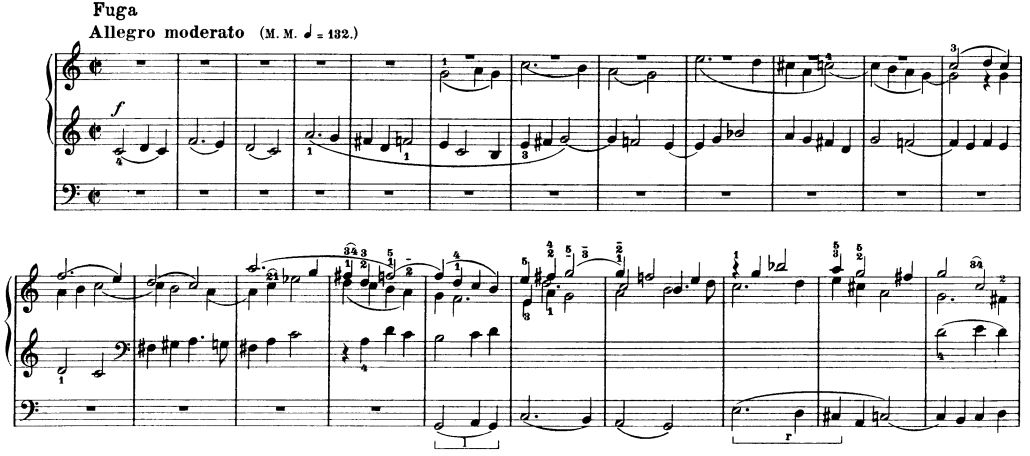
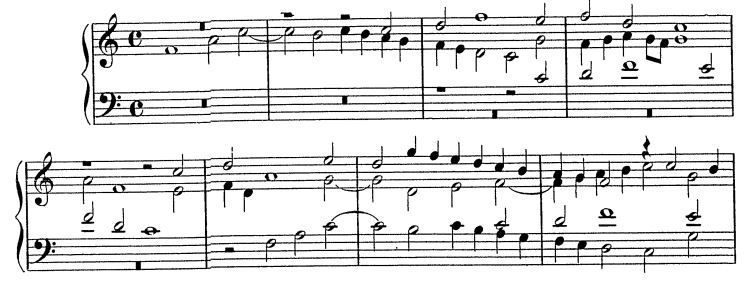
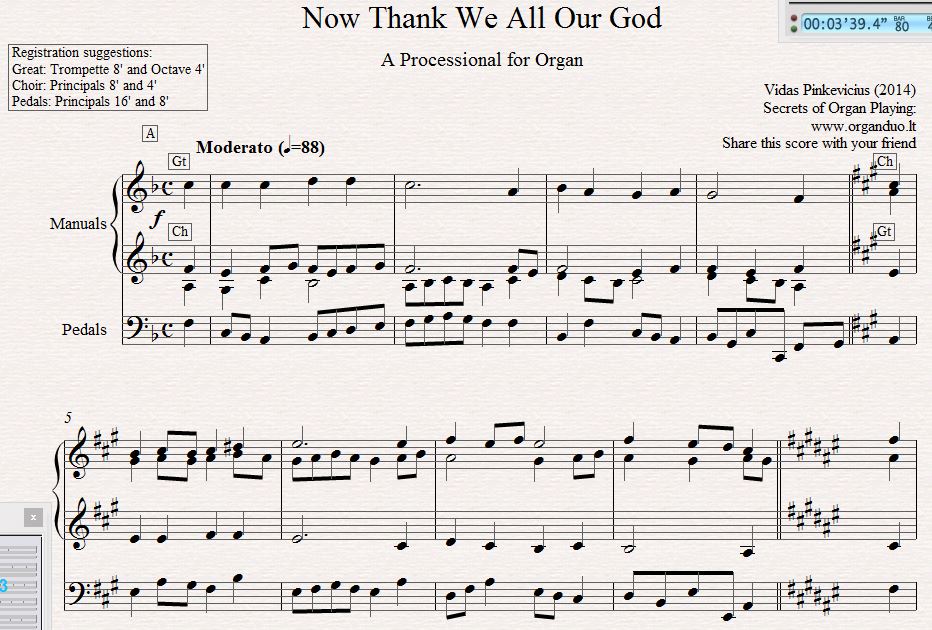
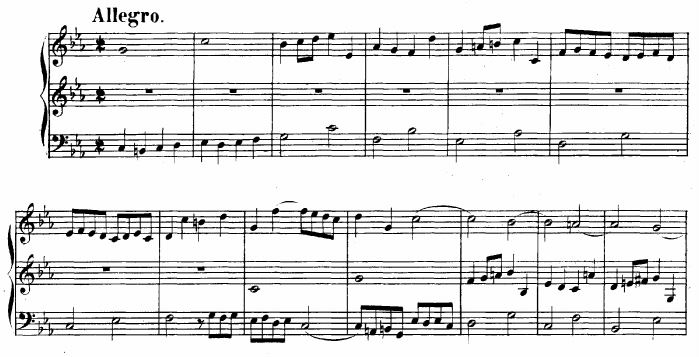
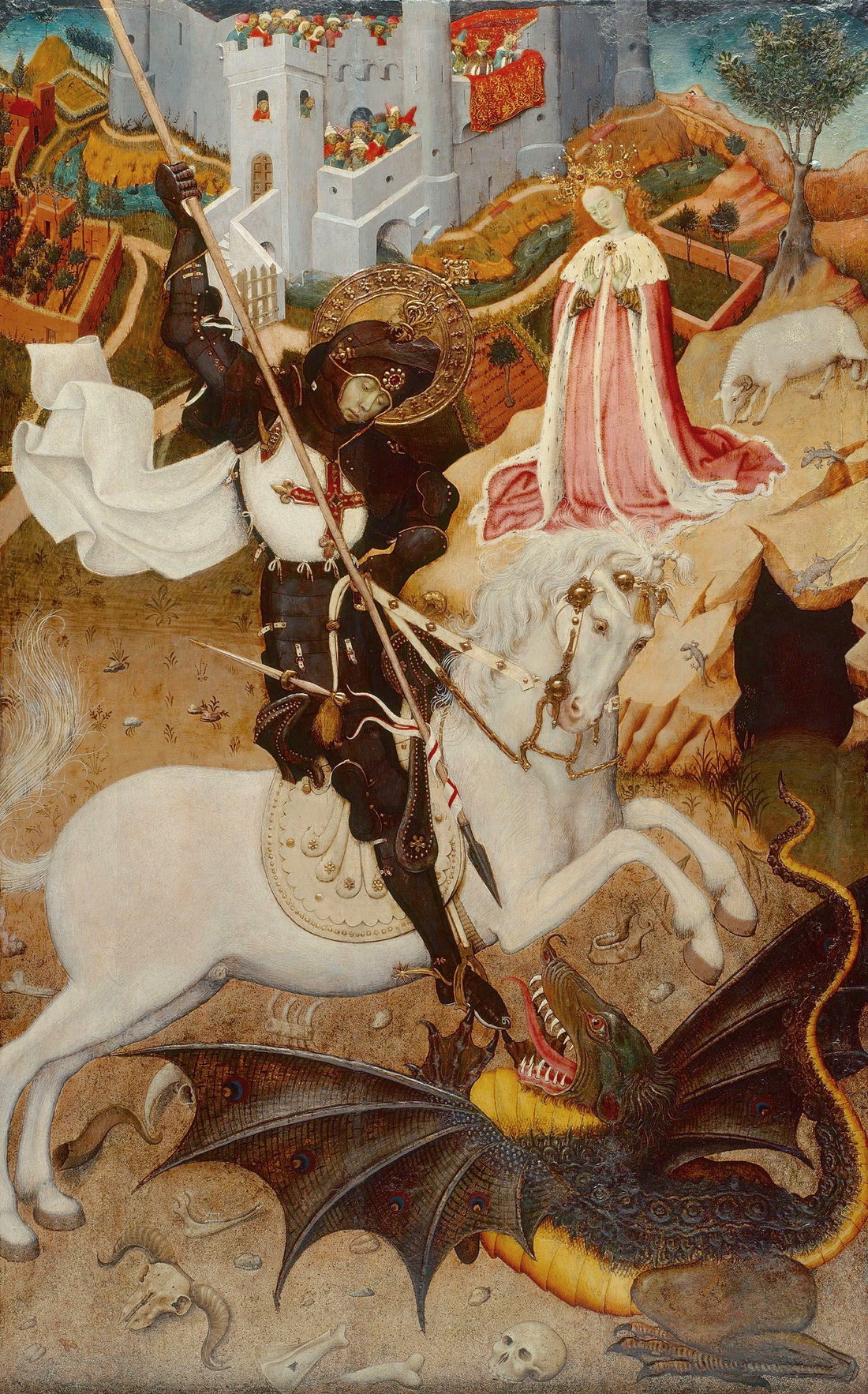
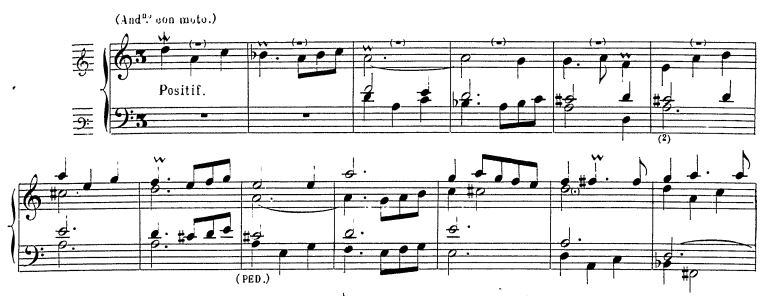
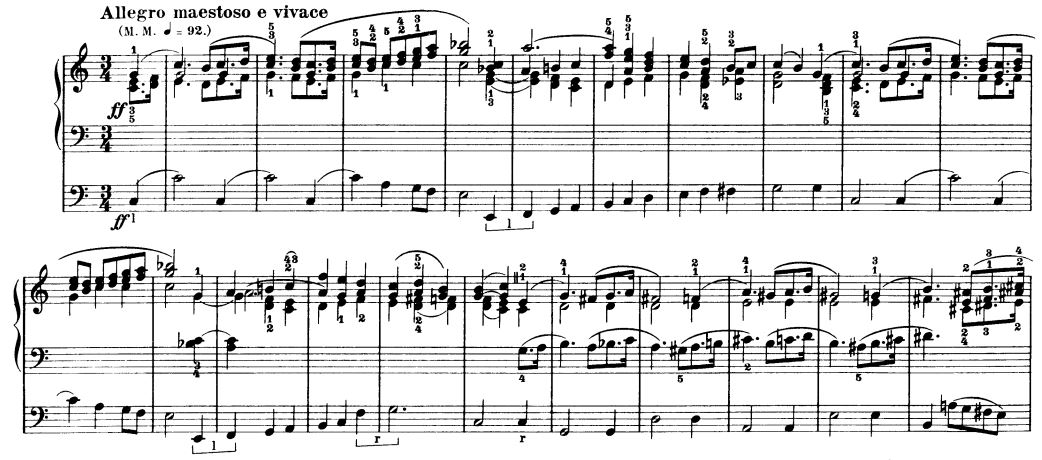
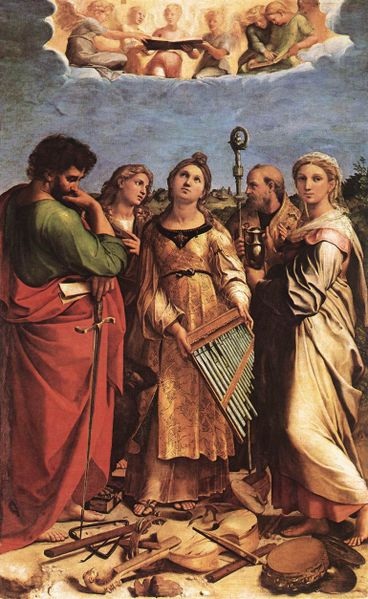
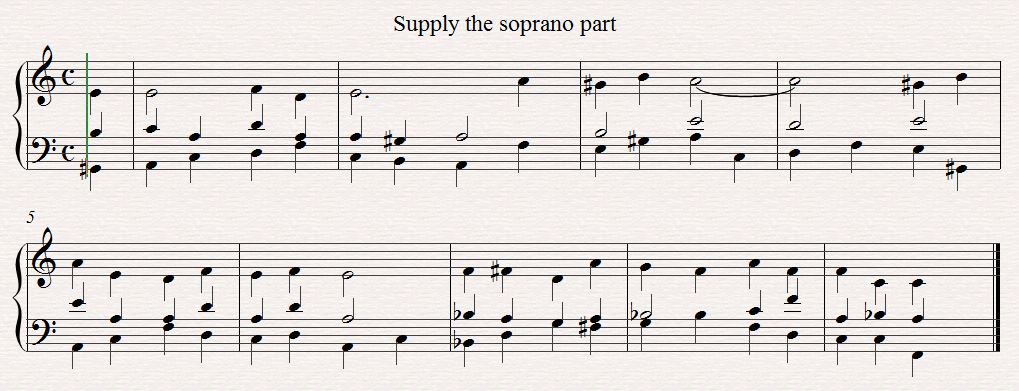
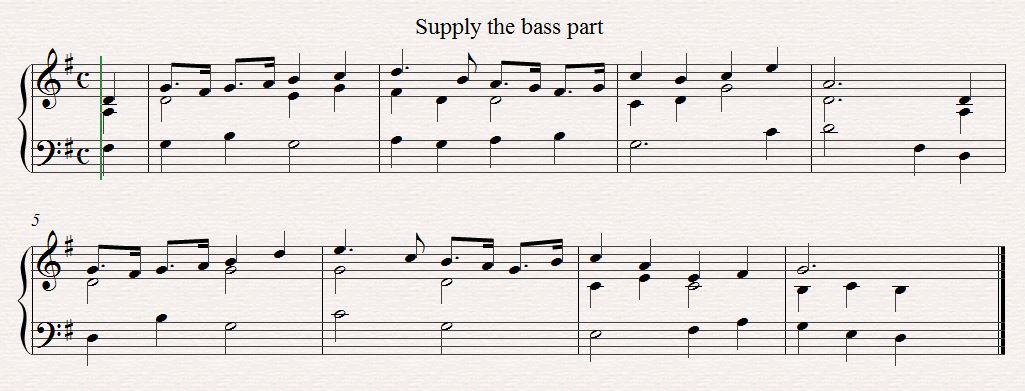
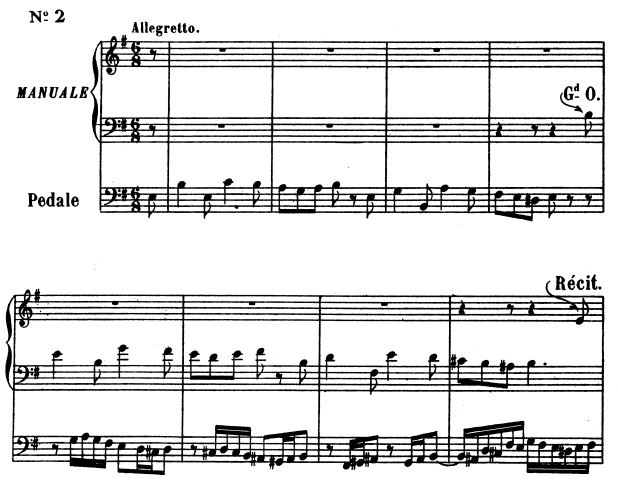



 RSS Feed
RSS Feed